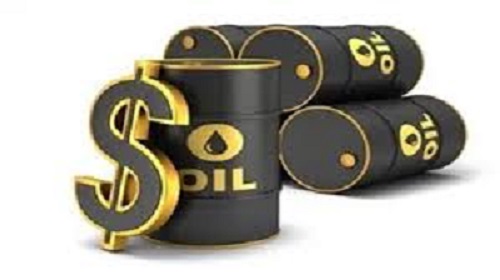In August 2023, Nigeria experienced a boost in revenue from the sale of crude oil (excluding condensates), thanks to a modest increase in production by both international and domestic operators within the industry.
According to data sourced from the Nigerian Upstream Petroleum Regulatory Commission and the Organization of Petroleum Exporting Countries (OPEC), oil production in Nigeria saw an uptick in August compared to the previous month.
In that month, Nigeria managed to produce a total of 36,615,125 barrels of crude oil (excluding condensates), surpassing the 33,761,767 barrels produced in July. This increase amounted to 2,853,358 additional barrels of oil. The World Bank reported that the average price of Brent crude, the global benchmark, in August 2023 stood at $86.16 per barrel.
Additionally, Exchange Rates UK, a global analytical firm, indicated that the average exchange rate of the United States dollar in Nigeria during August was ₦767.6. Consequently, this surge in oil production contributed to a rise in Nigeria’s oil earnings by approximately ₦188.71 billion for the month under review.
Regarding daily production figures, OPEC reported that Nigeria’s oil output reached 1.181 million barrels per day in August 2023. In its recently published monthly oil market report for September 2023, OPEC noted that Nigeria’s oil production had increased from 1.081 million barrels per day in July to 1.181 million barrels per day in August.
It’s worth noting that in May, Nigeria produced 1.18 million barrels per day, exceeding the 0.99 million barrels per day recorded in April. However, despite this improvement in August, the report highlighted that Nigeria’s oil output was still below the 1.249 million barrels per day recorded in June.
Further analysis of the report revealed that Nigeria’s average oil production in the second quarter of 2023 was 1.144 million barrels per day, which fell short of the 1.277 million barrels per day output in the preceding quarter.
Despite the marginal increase in August, Nigeria’s oil production has been on a downward trajectory in recent times, prompting calls from industry operators for concerted efforts to bolster output and generate more foreign exchange for the country.
Billy Gillis-Harry, President of the Petroleum Products Retail Outlets Owners Association of Nigeria, expressed concern about the declining oil output and called for urgent investigations. He emphasized the need for increased production to mitigate potential economic downturns, especially with new oil discoveries in Nasarawa and Bauchi potentially offering a positive change.
Clement Isong, Executive Secretary of the Major Oil Marketers Association of Nigeria, stressed the importance of addressing crude oil theft, which not only hinders Nigeria from meeting its OPEC-approved production quotas but also deprives the country of crucial dollars needed for imports.
Isong highlighted the liquidity issues in the Importers and Exporters (I&E) window and emphasized that resolving security challenges in the Niger Delta would be essential to increasing daily crude oil output, subsequently stabilizing the forex market.













